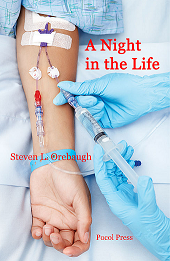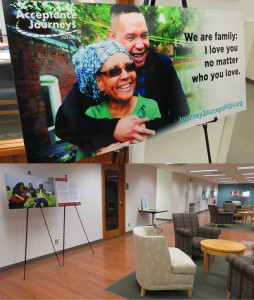 The Parisian bookbinding workshop later known as Gruel & Engelmann was founded in 1811 by Isidore Desforges. Desforges took his son-in-law Paul Gruel into partnership in 1825. After Gruel’s death in 1846, his widow Catherine, successfully continued the business. She had exquisite artistic taste and attracted the best talent to her workshop. It was a meeting place for all important binders of the time, and her salon became a literary club for celebrated collectors of books and bindings. Catherine won the highest prize at the Paris Exhibition in 1849, and repeated this success in 1851 at the Great Exhibition in London where she won the gold medal for excellence of workmanship. Continue reading
The Parisian bookbinding workshop later known as Gruel & Engelmann was founded in 1811 by Isidore Desforges. Desforges took his son-in-law Paul Gruel into partnership in 1825. After Gruel’s death in 1846, his widow Catherine, successfully continued the business. She had exquisite artistic taste and attracted the best talent to her workshop. It was a meeting place for all important binders of the time, and her salon became a literary club for celebrated collectors of books and bindings. Catherine won the highest prize at the Paris Exhibition in 1849, and repeated this success in 1851 at the Great Exhibition in London where she won the gold medal for excellence of workmanship. Continue reading
PubMed Central: A Digital Archive of Medical History
Most people know PubMed Central (PMC) for its free, full-text archive of recent biomedical journals. If you love medical history, you’ll also find that PMC contains a gold mine of historical journal articles dating back to 1809.
Among the many fascinating items in the collection are: Continue reading
HSLS Staff News
The HSLS Staff News section includes recent HSLS presentations, publications, staff changes, staff promotions, degrees earned, etc.
Publications
Author names in bold are HSLS-affiliated
Jonathon Erlen, history of medicine librarian, served as a major contributor to ISIS Current Bibliography of the History of Science and Its Cultural Influences 2015. Chicago: University of Chicago Press, 2016.
S.T. Stahl, J. Rodakowski, E.M. Saghafi, reference librarian, et al., published “Systematic Review of Dyadic and Family-oriented Interventions for Late-life Depression” in the International Journal of Geriatric Psychiatry, January 21, 2016.
Classes April 2016
HSLS offers classes on database searching, software applications such as Prezi, bibliographic management, and molecular biology and genetics. For more information, visit the online course descriptions.
Classes are held on the first floor of Falk Library (200 Scaife Hall) in Classroom 1 and on the upper floor of the library in Classroom 2. All classes are open to faculty, staff, and students of the schools of the health sciences at the University of Pittsburgh, who will need a valid Pitt ID or e-mail account. They are also open to UPMC residents and fellows, who will need to show their UPMC IDs. Continue reading
search.bioPreprint: Immediate Discovery of New Biomedical Research
 HSLS has developed a new tool, search.bioPreprint, that helps researchers to comprehensively search preprint databases to discover cutting edge, yet-to-be published or reviewed biomedical research articles.
HSLS has developed a new tool, search.bioPreprint, that helps researchers to comprehensively search preprint databases to discover cutting edge, yet-to-be published or reviewed biomedical research articles.
What is a preprint database?
- Open access online distribution centers/archives that enable authors “to make their findings immediately available to the scientific community and receive feedback on draft manuscripts before they are submitted to journals” (bioRxiv). Articles are not copyedited or peer-reviewed prior to posting online, although they undergo a basic screening process to check against plagiarism, offensiveness, and non-scientific content. Authors may make revisions at any point prior to publication, but all versions remain available online.
Examples?
- arXiv is a preprint server covering physics, mathematics, computer science, nonlinear sciences, statistics, and quantitative biology since 1991.
- bioRxiv covers new, confirmatory, and contradictory results in research ranging from animal behavior and cognition to clinical trials, and neuroscience to zoology.
- F1000Research provides a platform for the immediate publication of scientific communication. Posters and slides receive a digital object identifier and are instantly citable. Articles that pass peer review are then indexed in Scopus and Google Scholar. Articles are available in PMC and therefore searchable in PubMed.
- PeerJ Preprints cover biological, medical, and computer sciences. Their aim is to reduce publishing costs while still efficiently publishing innovative research.
Why preprints?
- There is a developing movement of preprint supporters who want the current journal publication and peer review system to change. They propose that preprints play a role in “catalyzing scientific discovery, facilitating career advancement, and improving the culture of communication within the biology community (ASAPbio).”
Why create a preprints search tool?
- Until the creation of search.bioPreprint, there has been no simple way to identify biomedical research published in a preprint format, as they are not typically indexed and are only discoverable by directly searching the aforementioned preprint server Web sites. search.bioPreprint is a one-stop-shop for finding these types of articles, and an important contribution to the preprint movement.
For more information, please contact the MolBio Information Services Department.
~Carrie Iwema
Read and Monitor Your Favorite Scholarly Journals with BrowZine
BrowZine provides an easy way to browse and read thousands of scholarly journals from publishers such as JAMA Network, Nature, American Psychological Association, BMJ Publications, PLoS, Biomed Central, and many more. Pitt users can access BrowZine on their Web browser or through the easy-to-use mobile app.
Why Use BrowZine?
BrowZine’s “My Bookshelf” feature makes staying up-to-date easy. You simply select your favorite journals and then click on Add to My Bookshelf. New article notifications are sent automatically, and you always get the full text, whether you are onsite or working remotely.
You can also:
- Quickly view table of contents of current and past journal issues.
- Export citations to EndNote, Mendeley, Zotero, RefWorks, Dropbox, and other services.
- Share with other researchers by posting to Facebook and Twitter or e-mail articles.
UPMC Physician Authors Fiction Book
 UPMC physician and author Steven L. Orebaugh donated a copy of his fiction book, “A Night in the Life,” to the HSLS Leisure Reading Collection. This gritty, fast-paced book is based on his real life experiences working in the emergency department of a community hospital located in Pittsburgh.
UPMC physician and author Steven L. Orebaugh donated a copy of his fiction book, “A Night in the Life,” to the HSLS Leisure Reading Collection. This gritty, fast-paced book is based on his real life experiences working in the emergency department of a community hospital located in Pittsburgh.
The Leisure Reading Collection is located at the rear of the main floor of Falk Library in the comfortable seating area.
Affiliated Authors Encouraged to Donate
HSLS is proud of books authored or edited by Pitt health sciences faculty and UPMC clinicians, especially when we can make those books available in our collections. Continue reading
LGBT Public Health Exhibit on Display at Falk Library
 Falk Library is currently hosting a special exhibit entitled, “Acceptance Journeys Pittsburgh: Addressing LGBT stigma through science, the humanities, and social marketing.” The Graduate School of Public Health developed the exhibit in conjunction with the Provost’s Year of Humanities. The posters for this exhibit are designed with public health messages relating to stigma and feature local Pittsburghers. As an interactive exhibit, visitors can leave their reactions through written notes or recorded audio.
Falk Library is currently hosting a special exhibit entitled, “Acceptance Journeys Pittsburgh: Addressing LGBT stigma through science, the humanities, and social marketing.” The Graduate School of Public Health developed the exhibit in conjunction with the Provost’s Year of Humanities. The posters for this exhibit are designed with public health messages relating to stigma and feature local Pittsburghers. As an interactive exhibit, visitors can leave their reactions through written notes or recorded audio.
The exhibit is displayed on the upper floor of Falk Library in the study lounge through March 10, 2016.
~Julia Dahm
Domestic Violence: Nurses Making a Difference
Confronting Violence: Improving Women’s Lives, an online exhibit by the National Library of Medicine, explores the role of nurse activists in creating awareness of domestic violence as a medical, nursing, and public health issue. Narrative and digital images depict the history of the anti-domestic violence movement in the United States, early research published by nurses on this topic, and materials used to create awareness of domestic violence and provide referral information to victims of abuse. A digital gallery allows viewers to watch videos created during the 1980’s and 1990’s to instruct physicians and nurses in techniques for screening, intervention, and referral for domestic abuse. The education section of the exhibit contains extensive teaching materials suitable for undergraduate and graduate-level courses, as well as lesson plans for students in grades seven through twelve.
Almost as interesting as the exhibit itself is its backstory. The National Library of Medicine typically creates exhibitions to showcase materials already in the library’s collections. However, when initially approached about creating an exhibit on domestic violence, NLM determined that it had an inadequate number of resources on this topic. A three-year collaborative effort between NLM, nurses who played critical early roles in the anti-domestic violence movement, and Johns Hopkins Medical Institution, led to the creation of a manuscript collection that now resides in NLM’s History of Medicine Division. That collection, “representing a significant national movement within the medical profession” (NLM in Focus, Oct 29 2015), serves as the basis of the current exhibit.
~Mary Lou Klem
HSLS Staff News
The HSLS Staff News section includes recent HSLS presentations, publications, staff changes, staff promotions, degrees earned, etc.
Publication
Author name in bold is HSLS-affiliated
B.A. Primack, M.V. Carroll, P.M. Weiss, Reference & Information Technology Librarian, A.L. Shihadeh, A. Shensa, S.T. Farley, M.J. Fine, T. Eissenberg, and S. Nayak published “Systematic Review and Meta-Analysis of Inhaled Toxicants from Waterpipe and Cigarette Smoking” in Public Health Reports, January-February 2016, 131(1): 76-85. Also see Research Notes in the University Times.
Classes March 2016
HSLS offers classes on database searching, software applications such as Prezi, bibliographic management, and molecular biology and genetics. For more information, visit the online course descriptions.
Classes are held on the first floor of Falk Library (200 Scaife Hall) in Classroom 1 and on the upper floor of the library in Classroom 2. All classes are open to faculty, staff, and students of the schools of the health sciences at the University of Pittsburgh, who will need a valid Pitt ID or e-mail account. They are also open to UPMC residents and fellows, who will need to show their UPMC IDs. Continue reading
Major Publishers Requiring ORCID iD in 2016
![]() An ORCID iD from the Open Researcher and Contributor ID registry is the new permanent, universal digital identifier for authors. This uniquely identifies and accurately connects you to your scholarly works throughout your lifetime, no matter how your name or institution may vary. The University of Pittsburgh is now an institutional member of ORCID; Pitt authors are encouraged to register now for an ORCID iD as this will increasingly become a required part of the academic publishing environment.
An ORCID iD from the Open Researcher and Contributor ID registry is the new permanent, universal digital identifier for authors. This uniquely identifies and accurately connects you to your scholarly works throughout your lifetime, no matter how your name or institution may vary. The University of Pittsburgh is now an institutional member of ORCID; Pitt authors are encouraged to register now for an ORCID iD as this will increasingly become a required part of the academic publishing environment.
On January 7, 2016, ORCID announced that eight publishers, including Science, Public Library of Science (PLoS), IEEE, eLife, EMBO and Hindawi are making the 16-digit ORCID iD a requirement for manuscript submission starting in 2016. Nature Publishing Group (NPG) was a launch partner of the ORCID registry, and along with Wiley and Elsevier, has been accepting ORCID iDs since 2012, but has not yet made it a requirement. ORCID hosted an open letter to publishers outlining reasons for integrating the ORCID iD into the publishing workflow. A table indicating commitments and date of initiation is included.
ORCID iDs create greater efficiencies for authors, publishers, funders, and other entities in the academic scholarly communication universe. When authors enter their ORCID iD during manuscript submission, fields are automatically completed. No more repetitive data entry! No more name ambiguity!
HSLS invites all current or potential researchers and authors to register for a free ORCID iD through Pitt’s custom registration portal. For more information, visit the HSLS ORCID LibGuide, or contact Andrea Ketchum at ketchum@pitt.edu or 412-648-9757.
~Andrea Ketchum
Changes to the HSLS Online Collection for 2016
Journals added to the HSLS online collection for 2016 include:
- Annals of Human Genetics
- EcoSal Plus
- JAMA Cardiology (forthcoming in 2016)
- Microbiology Spectrum
- Nature Microbiology
- Nature Reviews Disease Primers
HSLS continually adds new open-access journals, so check our E-Journals by Subject list for titles in your area of interest. Continue reading
Photoshop Elements: A Solution for Every Image
Adobe Photoshop Elements 14 is now available on the Falk Library upper floor computers, for use by University of Pittsburgh students, faculty, and staff of the schools of the health sciences.
Photoshop Elements is ideal for both novice and expert users for image editing and enhancement. This software can work with many types of pictures, from selfies on your phone, to professional images captured in RAW, to everything in between. Continue reading
